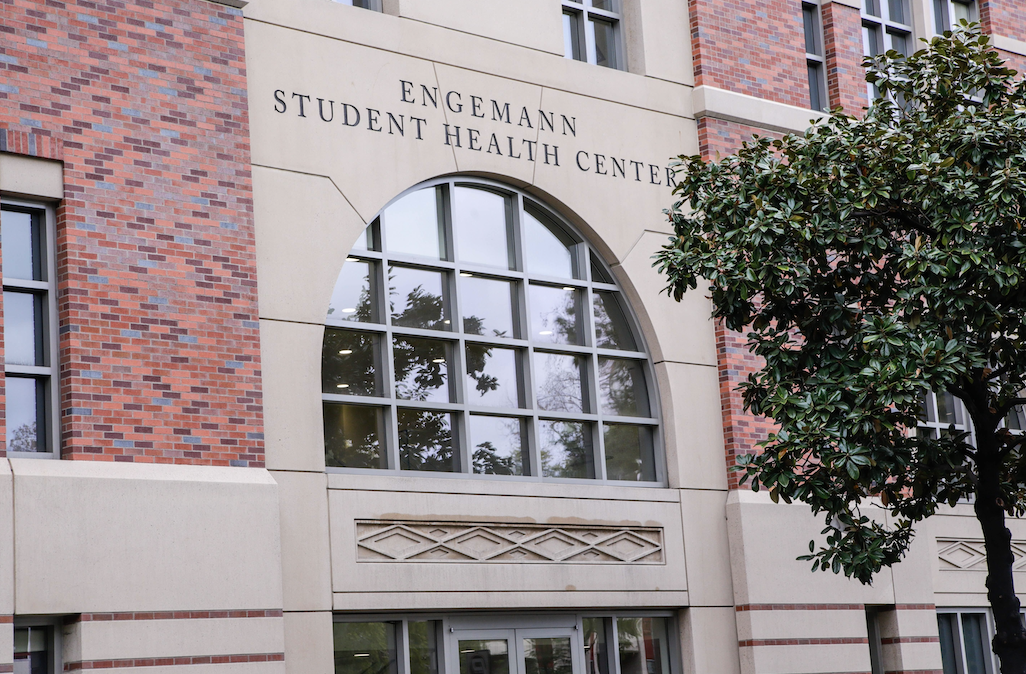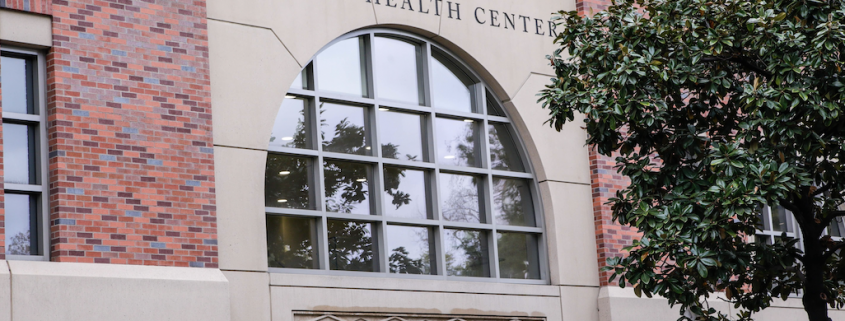Tyndall settlement moves forward, agreement filed

The $215 million class-action settlement agreement for former patients of former USC gynecologist George Tyndall is now moving forward.
The agreement, filed by USC students and alumni Tuesday, outlines the settlement distribution for an estimated 17,000 former patients of Tyndall, who was accused of sexual misconduct by approximately 400 women. It will require the University to implement new procedures for dealing with incidents of sexual assault and misconduct.
“I am encouraged by today’s settlement filing, which takes another important step in healing our community,” Interim President Wanda Austin wrote in a statement to the Daily Trojan. “Every affected individual is a member of the Trojan Family, and we care deeply about their well-being.”
The class counsel said in a press release that the agreement is still subject to court approval. The settlement agreement obtained by the Daily Trojan states the University will be required to implement several reforms to ensure future student safety.
“USC must implement a series of reforms — with oversight from the court and class counsel — to ensure the safety of its students going forward,” the class counsel wrote.
If the settlement is approved, the court will appoint an independent women’s health advocate to hold USC accountable and ensure that sexual or racial misconduct complaints are investigated. An independent consultant will also make recommendations — which will be released to the public — for the way the University addresses such issues.
USC will also be required to staff a female physician, establish online and offline channels for anonymous patient feedback and adopt “sensitive exam” practices consistent with the policies outlined by American College of Obstetricians and Gynecologists. Students would also have to undergo mandatory training to prevent future campus sexual misconduct, according to the settlement.
To implement the reform, the class counsel will rely on the Equitable Relief Committee, which will comprise one expert selected by the class counsel, a second individual selected by USC and a third individual chosen by the first two members of the committee. The committee will begin working Monday to create effective and attainable goals and discuss deadlines based on the listed reforms. It will provide an update 60 days from Monday.
The settlement also requires the University to hire an independent task force member, appointed by class counsel, onto the Survey Task Force for the Spring 2019 Campus Climate Survey, which will gather information regarding students’ experiences with sexual misconduct and harassment and their overall knowledge of resources. The University has already begun working toward this goal.
Alumnae Elisabeth Treadway and Shannon O’Conner, who both came forward as victims of Tyndall, expressed support for the settlement.
Treadway, who graduated from USC in 2001, had an appointment with Tyndall in 1997 when she was a sophomore. She said Tyndall did not allow her to be covered during the examination and touched her inappropriately as he diagnosed her with herpes.
“The most important thing here is that the women of the University [and] other universities are safe,” Treadway said. “I don’t hold USC as an institution accountable so much as I hold the people who knew accountable and Tyndall accountable. I fully believe there will be a criminal investigation and I would be more than happy to testify.”
Tyndall also played with and made comments about Treadway’s vaginal piercing, saying she should keep it secret so that people would not discover “what kind of woman she was.”
O’Conner, a 1995 graduate, said she visited Tyndall in 1993 for birth control pills. During the examination, Tyndall thrust his fingers into her vagina without gloves, causing her to panic.
“I don’t hate USC,” O’Conner said. “It’s completely the opposite. I just hope that this lawsuit — I know it will — implement changes for years to come at the University that will protect women from this ever happening again. That is the most important.”
She said she expressed her discomfort multiple times and tried to pull away, but he grabbed her hip and held her down. After the appointment, she told a nurse at the front desk about her encounter, but her concerns were brushed away.
Treadway and O’Conner both plan to be part of the class settlement.
Attorney John Manly, who is serving as counsel for 185 victims in the case, said the settlement is “horrible” and believes the agreement shows how USC does not care for its female students.
“If you’re interested in protecting doctors who sexually assault their patients, it’s a great settlement,” Manly said. “It provides no insight on who knew what [and] when. It gives no real changes … provides no accountability, does not explain how this was allowed to go on for 30 years and, basically, it only guarantees someone who was sexually assaulted by their doctors $2,500.”
The agreement outlines the compensation distribution plan for all former Tyndall patients treated for women’s health issues from Aug. 14, 1989, to June 21, 2016, who choose to participate in the settlement.
“The $215 million in monetary compensation provided by the agreement recognizes all women who were patients of Tyndall, gives survivors a choice on how they want to participate and does so in a setting that is more private and immediate than would occur through litigation,” the class counsel wrote.
The claim process for eligible students and alumni seeking compensation through the settlement is divided into a three-tiered plan, according to the settlement. Every class member in Tier 1 will receive an initial payment of $2,500, along with eligibility for Tier 2 or 3 payments.
“Those who can be identified through USC’s existing health center records will be automatically mailed a … payment check … once the settlement is effective,” the suit read. “Those class members who could not be identified through USC’s records must submit a simple signed Statement of Class Membership Form to receive their … payment.”
Tier 2 and Tier 3 will compensate victims between $7,500 and $20,000, and $7,500 and $250,000, respectively. For both tiers, the suit claims that a team of gynecology, psychology, psychiatry and post-traumatic stress disorder experts will review and allocate the payments. The settlement states that Tier 2 class members who choose to provide additional information detailing their experiences with Tyndall may be eligible for Tier 3 payments.
Manly said, however, that the sum of money allocated to victims pales in comparison to the consequences of the Michigan State case, for which he negotiated a settlement for a sexual assault case against former doctor Larry Nassar that settled for $500 million. Manly said that for the 332 victims, the average compensation payment was nearly $1.25 million.
“When we go to USC, we all talk about how we’re members of a family,” Manly said. “But, what family does that to their children? Or their mothers or their sisters? It’s just despicable, and it makes me embarrassed and ashamed.”
Attorney Gloria Allred, who is serving as counsel for victims in the state class action against USC, expressed frustration with the settlement.
“We believe that it is extremely important for the victims to know what the USC administration knew and when they first discovered the prior complaints made by some of the 17,000 USC students Dr. George Tyndall purportedly examined,” Allred wrote in a statement emailed to the Daily Trojan. “Until discovery (interrogatories and depositions) is conducted in the pending state cases, answers to the many questions posed about USC’s culpability and gross failure to supervise Dr. Tyndall will remain unanswered.”
Allred believes the payment victims will receive is a “wholly inadequate” sum of damage compensation. She also plans to object to the settlement.
“We will be objecting to the Federal Court settlement as being … premature and recommending to our 58 clients to opt out of the settlement (which they have an absolute legal right to do) until discovery is conducted in the state court proceedings,” Allred wrote. “We will continue to litigate for them until the full extent of USC’s reckless and shameful conduct is determined.”
O’Conner and Treadway said they are frustrated by Allred and Manly’s decision to object the settlement. Both of their experiences helped shape the class counsel’s settlement.
“It is offensive to me that he criticized how I choose to resolve this,” O’Conner said. “It’s my choice. If people want to make other choices, I support that. Everybody knows what’s best for themselves, but it doesn’t give me the right to criticize anybody else’s choice, and I don’t like having my choice criticized. It is very insensitive and selfish.”
The University wrote in a statement emailed to the Daily Trojan that USC has been implementing changes to prevent misconduct and promote student health on campus.
“In addition to the monetary relief offered in this settlement, USC continues to make sweeping changes … including establishing an Office of Professionalism and Ethics and an Office of Ombuds Services,” the University wrote. “The University is also strengthening operating and oversight procedures at the Student Health Center, including making female physicians available to all patients, and engaging an independent women’s health advocate to ensure any complaints of improper conduct are investigated and resolved by appropriate university officials and authorities, among others.”
The settlement is currently being evaluated by the court to ensure it is fair and meets federal rules. The court will call the class counsel to reconvene on April 1 to ask questions about the settlement. Once the judge rules that the settlement meets the criteria, a notice will be issued and packages will be sent to all women who attended USC from 1989 to 2016, the period during which Tyndall worked at the health center.
After hearing from women who choose to step forward as part of the class, the settlement will be brought to the court again for final approval. The class counsel is aiming to reach final approval by Aug. 26.
“Providing a fair and respectful resolution to as many former, impacted patients as possible, and making impactful changes that strengthen our university continue to be our top priorities,” Austin wrote.
Editor’s note: A previous version of the article contained two errors. In the article, Shannon O’Conner’s name was misspelled. Attorney John Manly negotiated a settlement, not a class-action in the case against former doctor Larry Nassar. The Daily Trojan regrets these errors. This article was also updated to clarify that the press release was sent out on behalf of the plaintiff’s class counsel.

